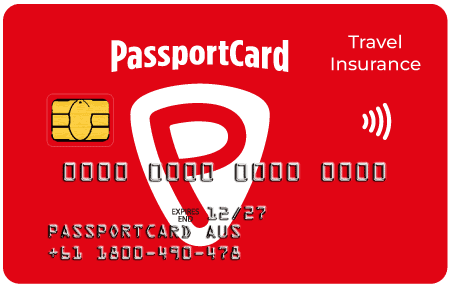

China Travel Guide
The ultimate destination for the adventurous tourist, a trip to China is sure to be an experience that will stay with you for a lifetime. With its rich history and culture, bustling and vibrant cities, stunning natural landscapes and unique culinary experiences, there really is no other place like it.
If you’re planning a trip to China, it’s important to do some research before you jet off to get an idea of what to expect. In this guide, we’ll fill you in on some of the key things you need to know about travelling to China so you can plan an unforgettable adventure that’s everything you hope it to be.
Visiting China
The first thing that will become immediately evident when planning your trip to China is that the country certainly isn’t small. Boasting the third largest land mass in the world, China really is an expansive country.
So where do you start when visiting this vast country as a tourist?
While it’s impossible to take in all of China in its entirety, here are a few key tourist drawcards that will give you a taste of what’s to love about this dynamic and rapidly developing country.
- Explore the Forbidden City in the heart of Beijing – This more than 600 year old UNESCO-listed walled city offers a captivating journey into China’s imperial history. With awe-inspiring architecture, intricate palaces, beautifully landscaped courtyards and a vast collection of priceless artifacts, this major tourist attraction is an ideal place to gain a glimpse into the opulence and grandeur of ancient Chinese dynasties.
- Experience the bright neon lights of Shanghai – With its unique blend of modernity and tradition where towering skyscrapers coexist with historic neighbourhoods like the Old Town, Shanghai possesses a vibrant cultural scene and bustling nightlife that is perfect for exploration and discovery. With its captivating skyline and picturesque waterfront along the Bund, Shanghai is a visually stunning experience that won’t be forgotten in a hurry.
- Become acquainted with the Army of Terracotta Warriors in Xi’an – Explore this incredible, UNESCO World Heritage site that provides a profound insight into ancient China, witnessing the archaeological marvel of thousands of life-sized terracotta soldiers, horses and chariots, each with their own unique facial expressions, weapons and clothing that were buried with China’s first emperor, Qin Shi Huang.
- Traverse the Great Wall of China – Taking more than 2,000 years to construct and spanning more than 20,000 kilometres, the Great Wall of China is arguably one of the most iconic and impressive human-made structures in history. Offering breathtaking panoramic views of China’s diverse landscapes, it’s one attraction that should be on every traveller’s bucket list.
- Take in the majesty of Zhangjiajie National Forest Park – Located in Hunan Province, this stunning park that inspired the landscape in James Cameron’s “Avatar” film features towering sandstone pillars, deep ravines and lush vegetation. Home to popular attractions such as the park’s famous glass walkway around Tianmen Mountain and the Bailong Elevator, it’s an attraction that will to appeal to both nature enthusiasts and adventure seekers alike.
Best ways to experience China
Climate
The climate in China can vary significantly between the northern and southern regions of the country. Generally speaking, you can expect to encounter hot, humid and often wet weather conditions in the southern parts of the country during the peak of the summer season from June through to August. For this reason, many travellers prefer to visit during the shoulder seasons (Feb-May and Sep-Oct) when the climate is a little milder. The temperature can drop significantly during the winter months between November and December, particularly in the far north where temperatures can get as low as -30°C.
While it’s important to research the climate at the time you want to travel, it’s also important not to time your travel based solely on climate. It’s helpful to know that during major national holidays such as around Chinese New Year and National Day (which take place in October), the vast majority of Chinese workers take time off, which can make it very difficult for tourists to get around.
Culture and language
The People’s Republic of China is officially an atheist state (with only 10 per cent of the adult population identifying with any religious group), however, the government formally recognises five religions which include Buddhism, Taoism, Catholicism, Protestantism and Islam.
Mandarin (or Standard Chinese) is the official language in China (with approximately 70 per cent of the population speaking it), however there are numerous other dialects spoken throughout China such as Yue (Cantonese), Xiang (Hunanese) and Min dialect among others.
While many workers within the service industry will speak some English, many Chinese people do not. This can make it a challenge to communicate in some locations, so it can be helpful to learn a few key words and phrases before your trip to help you get by and have a translation app on your phone at the ready.
Chinese culture can vary significantly to Australian culture, with many things that are taboo here considered acceptable in China (such as cutting in line in a queue), and some things that are acceptable here being frowned upon in China (such as keeping your shoes on when visiting someone’s home).
It’s important to avoid pointing your chopsticks or snapping your fingers toward someone as this is considered to be very rude. It’s also helpful to know that tipping is not customary throughout China—in fact, it can even be considered as an insult.
China also practices strict military rule with severe penalties (including the death penalty) for some crimes, making it very important that you familiarise yourself and abide by the local laws and customary practices in each location you plan to visit.
Getting around
Home to more than 1.4 billion people, it shouldn’t come as a surprise that the roads in China can be extremely congested. Typically packed with cars, scooters and bicycles, they can be notoriously difficult for tourists to navigate. In fact, visitors to China can’t legally drive on an international driver’s license, so it’s best to stick to taxis, ride sharing services and public transport, which is generally quite affordable.
Air travel or bullet trains are excellent ways to commute between major cities within China, while bus services are generally the best way to access smaller, more remote areas.
It’s also very important to take care when crossing roads in most parts of China. This even applies when walking on footpaths, as it’s not uncommon for bikes and scooters to use these when traffic is bad.
Accommodation
You’ll find a few different accommodation options throughout China, but most tourists tend to stay in either hotel (which can vary from budget, through to mid-range and luxury hotels) or hostel accommodation.
You’ll generally find that most of the accommodation in China is relatively affordable, however, it’s worthwhile reading some reviews from other travellers before making your selection.
Entry requirements
Australian’s need a visa to travel to China. You should consult your nearest Chinese embassy for current advice on the visa requirements and application process to travel to China. The process can be somewhat complicated and take some time, so it’s important to lodge your application well in advance of your date of travel.
It’s also a good idea to visit the Australian government’s Smartraveller website before your trip for the latest information and updates about travelling to China.
All benefits and covers are subject to the terms, conditions, limitations and exclusions listed in the Combined Financial Services Guide and Product Disclosure Statement (PDS) and on other policy documentation, including the schedule.
Please refer to the relevant PDS before purchasing our travel insurance to understand what is, and is not, covered by the policy to ensure it is the right cover for you.
China travel insurance FAQs
In China, flight delays and lost luggage are common occurrences, pick pocketing at major tourist sites can be a major problem and medical bills for tourists can be exorbitant. Travel insurance can provide valuable protection in each of these and a wide range of other scenarios that could happen while you’re away. Choosing cover that also offers instant claims can also be invaluable while travelling abroad.
The best way to find out how much it will cost to get cover to travel to China is to get an instant quote with PassportCard. It only takes a couple of minutes to get a personalised quote by providing some basic details such as your age, destination/s, travel dates and the level of cover you would like.
No. Many Australians don’t realise that they won’t be covered by Medicare when overseas. Purchasing travel insurance with cover for medical emergencies and evacuation is essential to ensure you won’t be left to foot the bill if you become seriously sick or injured while travelling.
Simply call our Global Assistance team on +61 1800 490 478 or contact us on WhatsApp. Our Australian-based Global Assistance team is available 24/7 and can quickly handle most common claims on-the-spot over the phone.
Preparing for your trip to China
All set for your trip to China? Here are some helpful tips to ensure your trip is as enjoyable as possible:
- Check your passport is valid with at least 6 months of validity left from the date you plan to leave the country
- Ensure you meet the visitor entry requirements for China and have obtained the relevant visa before your departure
- Speak to your doctor to check if you’ll need any vaccinations. Depending on where you are travelling and how long you will be staying, it’s generally advised that in addition to being vaccinated for Covid 19 and the full schedule of childhood immunisations, that you are also vaccinated for Hepatitis A and B, Typhoid, Polio, Japanese Encephalitis, Malaria and Rabies
- Be aware that it generally isn’t safe to drink the tap water in China. Instead, stick to bottled water and opt for well-cooked foods to minimise the risk of illness
- Notify your financial institution of your plans to travel and arrange a travel currency card or another method of payment to cover expenses while you’re away. Cash is the preferred method of payment in many places in China, so it’s also good to also take some Renminbi (RMB)/Chinese Yuan (CNY) or American Dollars (USD) with you
- Contact your phone provider to ensure your phone plan will cover you while you’re away or purchase a pre-paid international sim card
- Arrange your accommodation in advance for each location you plan to stay in
- Consider booking any trips, tours or activities you want to do in advance, particularly if you will be visiting during peak season when things can get very busy
- Provide details of your travel plans to a family member or close friend not travelling with you so you can be contacted in case of an emergency
- Save the details of how to access emergency consular assistance in case you need it
- Organise your travel insurance with PassportCard.
Get covered for your trip to China with PassportCard



Instant payouts on approved claims with PassportCard
When you choose PassportCard, you’ll enjoy the extra peace of mind of knowing you’ll be able to cover most expenses there and then if something goes wrong.
When you purchase one of our travel insurance policies, we’ll ask you if you’d like a PassportCard to take with you on your trip. If something happens while you’re away (like your luggage is delayed, your cash is stolen or you experience a medical issue), our team can handle your claim quickly over the phone and transfer funds to your PassportCard on-the-spot**.
If approved, you’ll be able to withdraw cash to cover expenses that can arise from things like delayed luggage or stolen cash, or if it’s a medical issue, we can instantly add funds to your PassportCard so you can immediately pay for expenses when you need to.
You won’t need to fill out any paperwork and instant access to funds means you won’t be left out of pocket.
Find out more about how instant claims work or get a quote for your upcoming trip.












